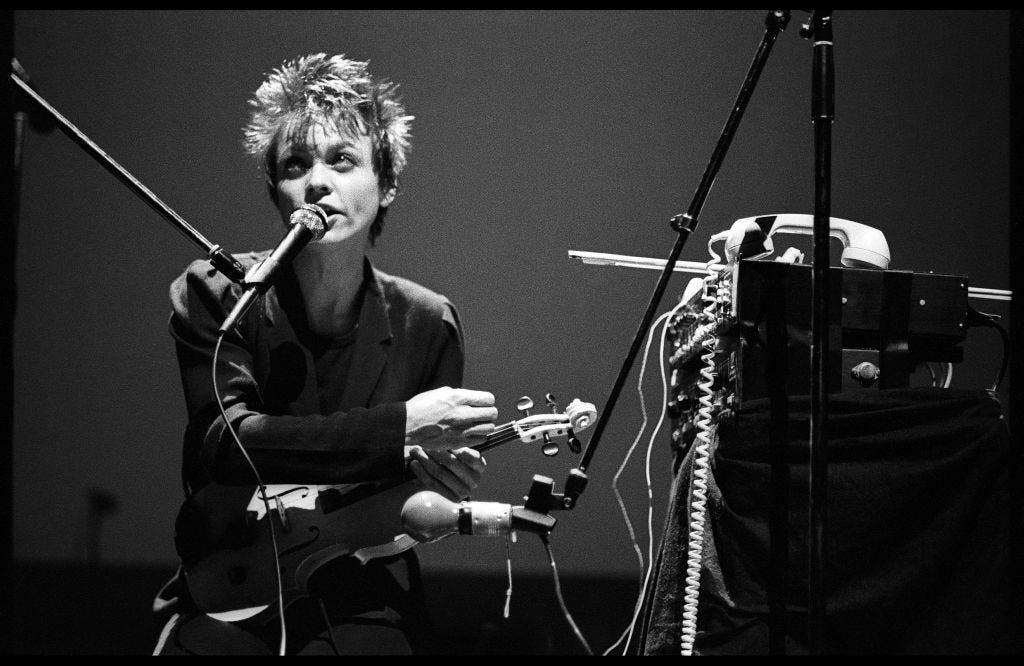Welcome to the third and final installment of #blocktober, my month-long series on creative blocks. In part one, I tried to capture how blocks feel. Then I divulged a bit of my own history in order to unpack the perfect conditions for a creative block. Now I want to offer five potential solutions, drawn from some of my favorite essays and interviews on the subject.
Try doing your very worst work
First, a practical suggestion from the musician Laurie Anderson, who said in a 2016 interview, “I have blocks all the time.” She has a few methods for overcoming them, including this:
Try doing your very worst work. Do the worst song you can possibly think of. At the very least, you’ll get some idea of what your rules are. At the most, you’re going to get something that’s better than anything you’ve ever done because it has a lot of pure energy.
Anderson is hardly the only artist to recommend this strategy. Anne Lamott famously endorses shitty first drafts. In his book Keep Going, Austin Kleon writes, “When nothing’s fun anymore, try to make the worst thing you can.” Kleon also references a letter Sol LeWitt sent to Eva Hesse in 1965, which contains similar advice: “Try to do some BAD work—the worst you can think of and see what happens.”
Do not worry about being blocked!
Another musician with good advice on blocks is Carole King. In an interview for Paul Zollo’s book Songwriters on Songwriting, King shared her secret to avoiding them:
Keep reading with a 7-day free trial
Subscribe to Subtle Maneuvers to keep reading this post and get 7 days of free access to the full post archives.


